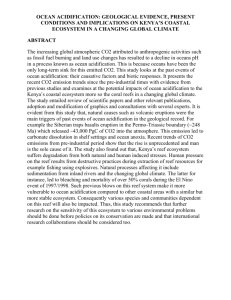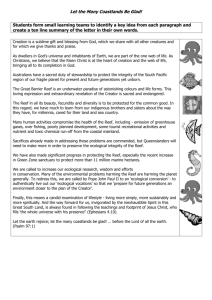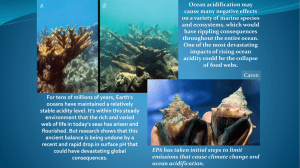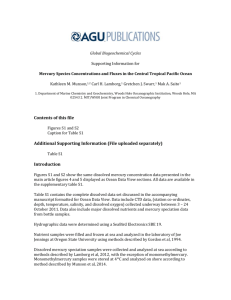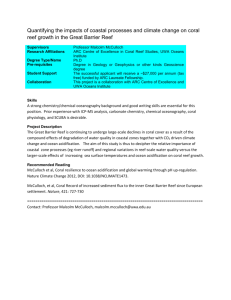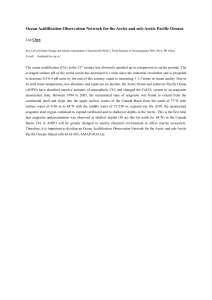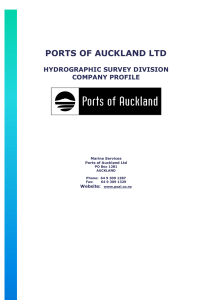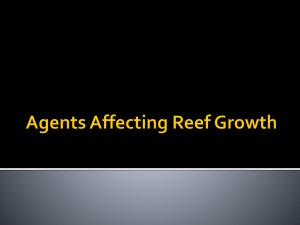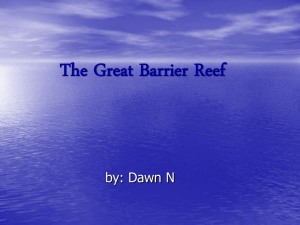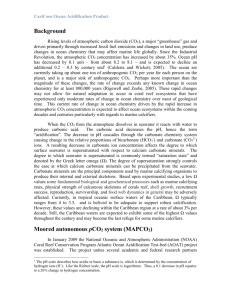A collection of articles related to Global Climate Change can be
advertisement
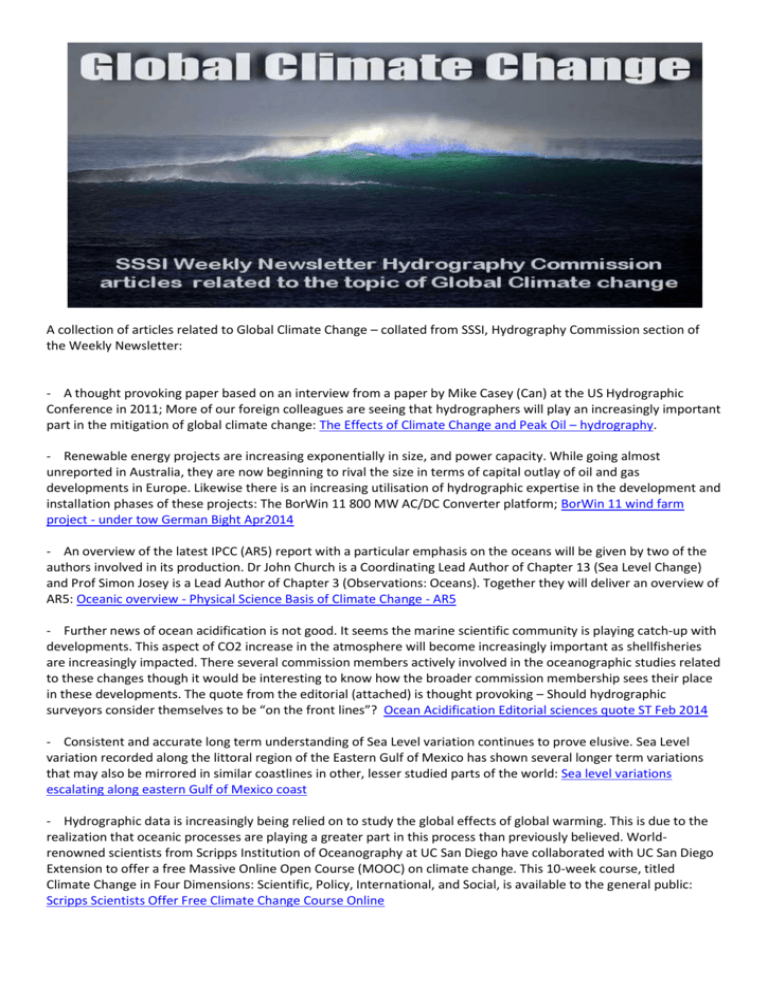
A collection of articles related to Global Climate Change – collated from SSSI, Hydrography Commission section of the Weekly Newsletter: - A thought provoking paper based on an interview from a paper by Mike Casey (Can) at the US Hydrographic Conference in 2011; More of our foreign colleagues are seeing that hydrographers will play an increasingly important part in the mitigation of global climate change: The Effects of Climate Change and Peak Oil – hydrography. - Renewable energy projects are increasing exponentially in size, and power capacity. While going almost unreported in Australia, they are now beginning to rival the size in terms of capital outlay of oil and gas developments in Europe. Likewise there is an increasing utilisation of hydrographic expertise in the development and installation phases of these projects: The BorWin 11 800 MW AC/DC Converter platform; BorWin 11 wind farm project - under tow German Bight Apr2014 - An overview of the latest IPCC (AR5) report with a particular emphasis on the oceans will be given by two of the authors involved in its production. Dr John Church is a Coordinating Lead Author of Chapter 13 (Sea Level Change) and Prof Simon Josey is a Lead Author of Chapter 3 (Observations: Oceans). Together they will deliver an overview of AR5: Oceanic overview - Physical Science Basis of Climate Change - AR5 - Further news of ocean acidification is not good. It seems the marine scientific community is playing catch-up with developments. This aspect of CO2 increase in the atmosphere will become increasingly important as shellfisheries are increasingly impacted. There several commission members actively involved in the oceanographic studies related to these changes though it would be interesting to know how the broader commission membership sees their place in these developments. The quote from the editorial (attached) is thought provoking – Should hydrographic surveyors consider themselves to be “on the front lines”? Ocean Acidification Editorial sciences quote ST Feb 2014 - Consistent and accurate long term understanding of Sea Level variation continues to prove elusive. Sea Level variation recorded along the littoral region of the Eastern Gulf of Mexico has shown several longer term variations that may also be mirrored in similar coastlines in other, lesser studied parts of the world: Sea level variations escalating along eastern Gulf of Mexico coast - Hydrographic data is increasingly being relied on to study the global effects of global warming. This is due to the realization that oceanic processes are playing a greater part in this process than previously believed. Worldrenowned scientists from Scripps Institution of Oceanography at UC San Diego have collaborated with UC San Diego Extension to offer a free Massive Online Open Course (MOOC) on climate change. This 10-week course, titled Climate Change in Four Dimensions: Scientific, Policy, International, and Social, is available to the general public: Scripps Scientists Offer Free Climate Change Course Online - An interesting news brief from NASA (JPL) and the University of Colorado regarding sea level around the Australian continent and higher than average rainfall over the 2010 – 2011 period. Apparently there was a measurable drop in sea level over this abnormal period, and a recovery following post 2011. - Informative article summarizing several ongoing American university studies into the longer term effects of Global Warming and ocean acidification. "The impacts of climate change will be felt from the ocean surface to the seafloor. It is truly scary to consider how vast these impacts will be," said co-author Andrew K. Sweetman, who helped to convene the original team of investigators and now leads the deep-sea ecosystem research group at the International Research Institute of Stavanger, Norway. "This is one legacy that we as humans should not be allowed to ignore." - See more here. - NOAA update on record breaking high ocean temperatures including a colour temperature map indicating worldwide temperature trends. - An interesting study into Sea Level Rise and Australian trends from the US National Centre for Atmospheric Research and other contributors. - Any hydrographic surveyors fortunate enough to have worked in reef environments know the beauty yet complexity of coral reef in survey terms. Several commission members have become expert in the geophysical nature of coral reef and surrounding seabed. The knowledge of reef (in both warm and cold waters) and anthropogenic degradation in terms of water temperature and salinity are becoming extremely important in the understanding of the changes and loss of healthy reef habitat worldwide.
